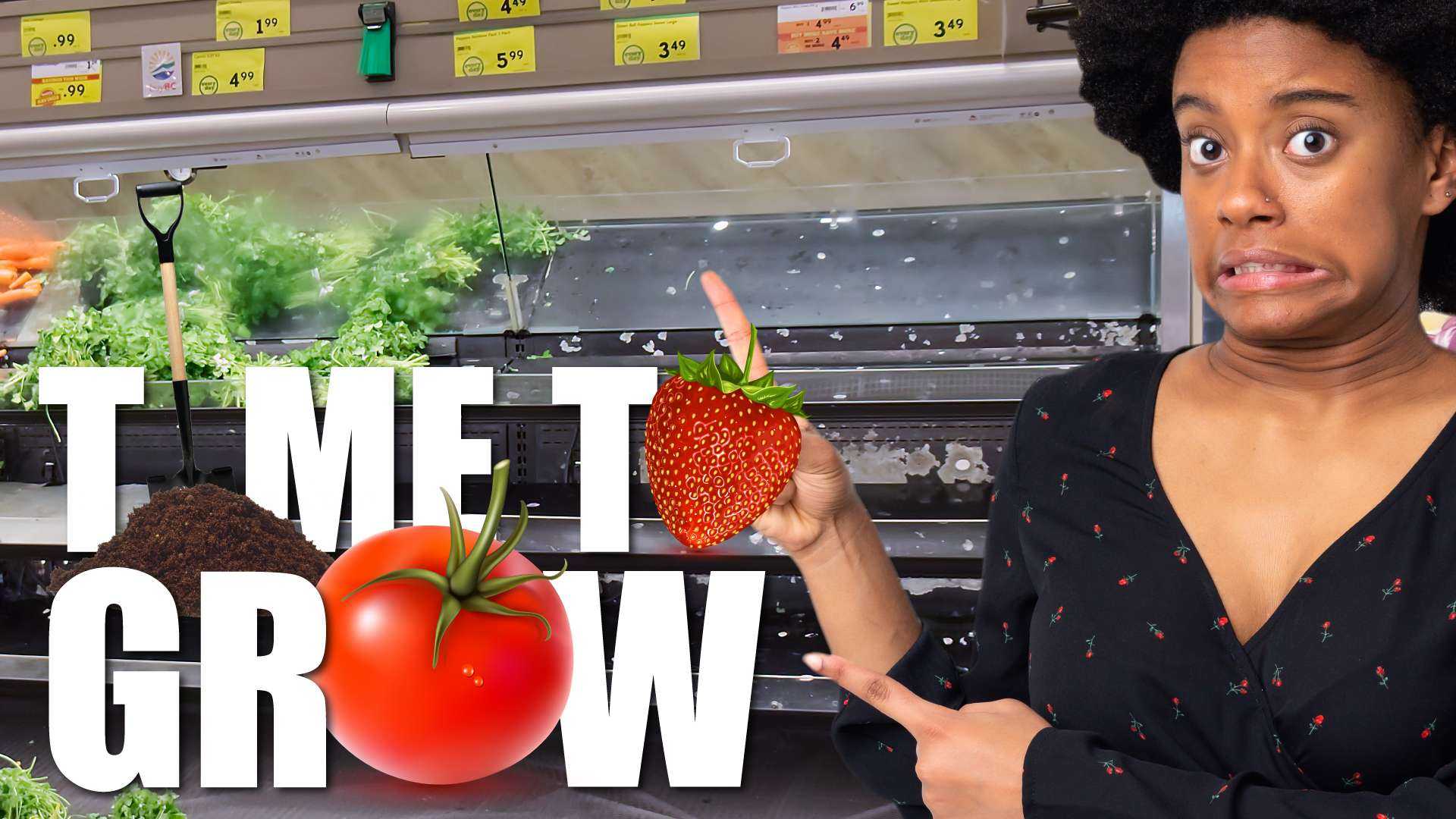BY SIMONE J. SMITH
According to the World Economic Forum, in 2020, 20 million more people experienced acute food insecurity at “crisis or worse levels,” then in 2019. Around 133,000 people in Burkina Faso, South Sudan, and Yemen faced widespread death and a collapse of livelihoods in the most severe level of food crisis.
Democratic Republic of the Congo, Afghanistan, Syria, northern Nigeria, Ethiopia, Zimbabwe and Haiti were also amongst the 10 worst affected countries, accounting for two thirds of those most at risk from malnutrition, starvation and death.
What COVID-19 did was expose the fragility of the global food system and the need for more equitable, sustainable and resilient systems in order to feed 8.5 billion people by 2030.
What many of us never thought was that we were going to see issues like food shortages in North America. On March 24th, 2022, President Biden warned of an increase in food shortages due to the Russian invasion of Ukraine. “It’s going to be real,” President Biden said. “The price of these sanctions is not just imposed upon Russia; it’s imposed upon an awful lot of countries as well, including European countries and our country as well. Russia and Ukraine have been the breadbasket of Europe in terms of wheat.”
“Shortages may depend on where you buy your groceries as there are regional differences in supply.” (Josh Brazil, VP of Supply Insights at Project44)
What we are experiencing in Canada is acute food insecurity. This occurs when a person’s inability to access and consume adequate food puts their life or livelihood in immediate danger. This might seem extreme to those who live the middle-class lifestyle, or in the suburbs, but there are parts of this great country where people’s lives are in danger.
There is a reason that we are noticing items missing from local grocery shelves, and it all varies depending on where you live, as well as the climate where you live. Living in the Northern Hemisphere exposes us to winter storms, which slow down supply chains in the short term. It is why different regions may have shortages of different things, especially depending on whether you shop at big box stores or other shops, like local farmer’s markets.
Let’s take a look at some of the shortages that are becoming more evident in 2022:
- Meat shortages, especially beef and poultry
- Dairy may be in short supply this year
- Egg shortages
- Plant-based proteins may be in short supply this year
- Shortages of fruits, vegetables, and other goods made with produce
- There will likely be a canned food shortage in 2022
- We may see shortages of imported goods
- We may experience a pet food shortage in 2022
- Bottled water and soda shortages may occur
If you think that things are bad now, just wait until we get into the second half of this year. What we need to be concerned about is the food that won’t be produced during this current growing season in the northern hemisphere. Worldwide fertilizer prices have doubled or tripled, this nightmarish bird flu pandemic is wiping out millions of chickens and turkeys, and bizarre weather patterns are absolutely hammering agricultural production all over the planet.
It really is quite a mess, so we want to ensure our community is prepared, and one way to do this is by imploring you to start growing your own food.
One thing that we have to take into consideration is that not all crops are created equal — at least not in terms of monetary worth. Growing certain plants could mean significant savings especially when shopping at the supermarket. Just think about it; food growing just steps away? That’s as fresh as it gets, and since you’re able to harvest and consume your produce at peak ripeness, it tastes better and offers greater nutrition than what you typically find in stores.
There are some other little discussed reasons why growing your own food will become a necessity. Since around 1940, we have seen a decline in nutritional value of up to 40%. On average, vegetables today have significantly less minerals, vitamins, and protein than vegetables did less than a century ago. The two main reasons for this decrease are:
Environmental dilution effect
Food producers use fertilization, irrigation, and other means common in industrialized farming to increase yield (and lower produce price). These methods have been found to also decrease produce quality.
Genetic dilution effect
Much of the food grown commercially now comes from hybrid plants developed to quickly produce hearty yields, often at the cost of quality. People are trying to grow more food faster, but their approach is impacting produce quality.
So how do you start a garden, especially if you have not grown one before?
Ask yourself, what am I going to grow in my home garden?
There are some things to think about here: do you want to plan for storing vegetables, or only enough to eat fresh? It’s probably best to start your garden mainly with fresh eating in mind, but some vegetables are extremely easy to store. Some examples are:
Part of the reason you don’t see crops like turnips, onions, and carrots on the list is because they are considered “plant one-harvest one” plants. With planting one-harvest one plants, you plant one seed (or seedling), and after several weeks of growing, you get one harvest.
Where am I going to start my garden?
Most fruits and vegetables need full sun, with a minimum of five hours of direct sunlight per day for fruiting. Greens, herbs and root veggies will grow in partial shade. Southern gardens may benefit from late afternoon shade, whereas northern gardens likely need all the sun they can get.
Avoid high wind areas and frost pockets (low areas where frost is likely to settle), and watch out for wildlife, pet damage and children’s play areas. Depending on where you live, you could have deer and wild bunnies come to visit, so we plan accordingly.
Plan your garden beds
Once you know where you want your garden, you have to decide on the type and size of your garden bed(s). Raised beds are attractive and may make it easier to work in your garden, but they also dry out more quickly. In very dry areas, sunken beds can be used to gather available moisture.
Start small, and make sure to give each plant enough room to grow. The seeds and transplants are tiny, but full-grown plants can get huge. Overcrowded plants have difficulty thriving. A small, well-tended garden can produce as much or more than a large, poorly tended garden.
If you live in an apartment building or condominium you may not think that you have many gardening options, but on the contrary, you do. If you grow vertically, you can squeeze more crops into less space. You can vertically grow tomatoes, beans, peas, cucumbers, and occasionally other crops.
Consider growing bags or containers to start your garden. There are self-watering containers that are a lot more forgiving than terracotta flowerpots, which tend to dry out quickly.
Plant seeds roughly three times as deep as the diameter of the seed, unless otherwise directed on the package. Some seeds require light for germination.
For transplants – most transplants are planted at the same depth they were growing in the pot. The exception is tomatoes, which can be planted deeper or trenched in. Wait until danger of frost is past to plant heat loving plants such as: tomatoes, peppers, cucumbers, okra, etc.
You are going to need the right tools
. Basic gardening equipment includes:
- Garden hoe
- Scuffle hoe
- Dirt rake
- Leaf rake
- Garden shovel or D handle shovel
- Hand tools
If you’re not prepared to make time in your schedule to tend to your new garden, you may be better off hitting the farmer’s market, or sticking with extremely low maintenance items like sprouts or herbs. Depending on the size of your garden, time requirements may range from a few minutes per day to a full time job.
We have to make strategic decisions for our family and for our community, and it starts with ensuring that everyone in our community eats, and eats well.



 Community News1 week ago
Community News1 week ago
 Community News1 week ago
Community News1 week ago
 Community News1 week ago
Community News1 week ago
 Community News1 week ago
Community News1 week ago
 Community News1 week ago
Community News1 week ago
 Community News1 week ago
Community News1 week ago
 Community News1 week ago
Community News1 week ago
 Community News1 week ago
Community News1 week ago






























